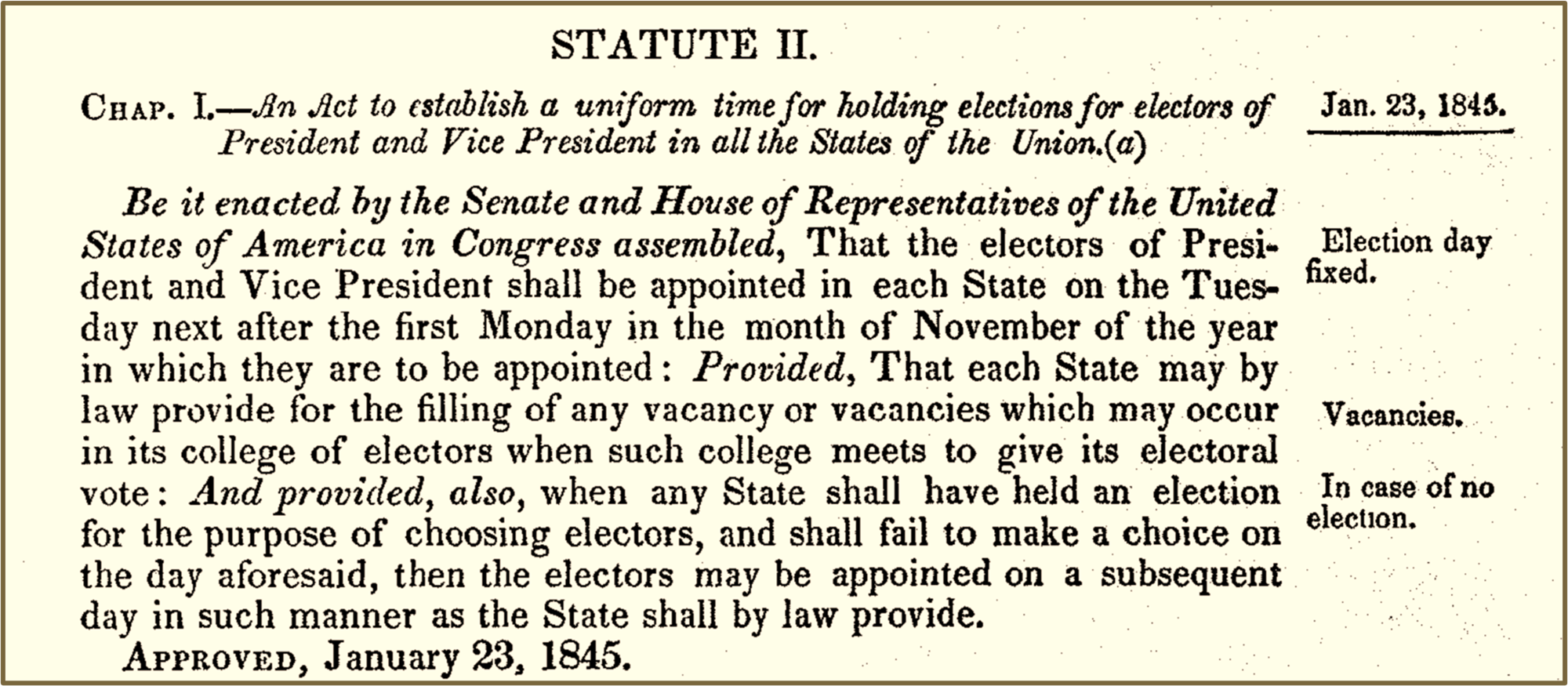Because it’s the right thing to do

I am going to vote on Tuesday because it is the right thing to do. I am not saving democracy, I’m just voting. In fact, I am not sure my vote is going to make much difference. We live in one of those too many parts of the country where things are so red or so blue it just doesn’t seem to matter. The fivethirtyeight.com projection has our incumbent U.S. senator at 98% likely to win reelection and our representative in congress at 99%. Many of our down-ballot races are uncontested until you get to the school board. With the possible exception of the school board race, my vote hardly counts. But I am going to vote because it is the right thing to do.
Vote because it is the right thing to do. If that is not enough motive, consider that this will be your last chance to vote on a second Tuesday in November for 22 years (well, in federal elections, anyway). You may remember from some high school civics class that election day, while normally the first Tuesday in November, is, by law, “the Tuesday next after the first Monday in the month of November.” This year we vote on the Tuesday next after the first Monday and that happens to be a second Tuesday.
Blame big tech.
It turns out that after it was ratified, the first congresses had to pass all sorts of legislation to codify some of the broad provisions of the Constitution. One of those details to be codified was the timeline for the election of the President. They decided on March 4 for the inauguration of the president and what with muddy roads and slow carriages and the electoral college and some time to put together a cabinet, they built in a transition period of four months. The electoral votes would be certified by the first Wednesday in December and the actual vote of the college six days later. The states could set their own election date so long as it was not more than 34 days prior to that first Wednesday in December, and they had enough time to count the votes and certify the electors. A day in early November was often chosen as election day because the harvest was in and the roads were not yet too muddy.
But then along came big tech.
Samuel Morse patented his first telegraph in 1837 and the age of instantaneous communication began. By the early 1840’s election results in one state were known in all the other states within a day or two of the election. Congress worried that the election results in states that voted earlier in the 34-day election window might influence the vote in late election day states. So, they passed a uniform election day law in 1845. The first piece of legislation made the uniform election day the first Tuesday in November, but someone realized that when the first Tuesday in November is the first, there are 35 days until the first Wednesday in December. They could have changed the 1789 law passed by the first congress, or they could have amended the new law. They amended the new law, hence, “the Tuesday next after the first Monday in the month of November.” Elections for representatives and eventually senators were added to Tuesday next over the course of time.
Blame big tech.
You may not save democracy by voting on Tuesday next, but it is your last chance until 2044 for a second Tuesday election. Mostly, though, vote because it is the right thing to do. And then wait for the results to come from the telegraph office or whatever big tech service you use.
